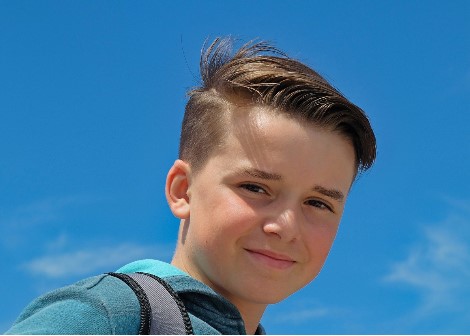Children that are mentally healthy are better equipped to handle life’s challenges and curve balls.
Parents play a big role in shaping their child’s health and wellbeing by modelling behaviours that promote and encourage good mental health.
What is good mental health?
Having good mental health does not mean that children will be free of difficulties or worries. Feeling worried, sad or fearful as we grow up is normal.
Being mentally healthy is an essential part of wellbeing, and incorporates social life and emotions. Your love, support and strong relationship with your pre-teen can have a direct impact on your child’s mental health.
Pre-teens who have good mental health often show the following characteristics:
- Feel happy and positive about themselves and enjoy life
- Have healthy relationships with family and friends
- Physically active and eat a healthy diet
- Involved in a range of activities
- Have a sense of achievement
- Can relax and have a good night’s sleep
- Feel like they belong to their community
Supporting your pre-teen’s mental health
Supporting your pre-teen’s physical and emotional health and wellbeing will help them to become more resilient as they enter their teenage years.
Here are a few ideas to promote positive mental health in your pre-teen.
- Demonstrate your love, affection and care for your child
- Show that you are interested in what’s happening in your child’s life
- Mention your child’s good points and achievements
- Listen to and value their ideas
- Spending one on one time and family time with your child
- Encourage your child to talk about their feelings with you and talk about solutions to problems that may arise
If you are concerned about your child’s mental health, talk to family members, friends, other parents or teachers. If you think you need more help, seek advice and support from your GP or health professional.
Benefits of being active
Being active contributes to good mental health as well as being very important for children’s physical health. Physical activity sends dopamine (a brain chemical) through the body, giving it a ‘feel-good’ feeling that can enhance mood.
Being active has many other benefits:
- Improves heart rate and fitness
- Develops strong muscles and bone
- Reduces stress
- Improves sleep
- Increases self confidence
- Maintains healthy weight
- Improves ability to learn new skills
- Creates opportunity to meet new people and make new friendships
Tips to encourage your child to be active
- Encourage your child to spend time outdoors and less time using digital technology
- Enrol your child in a team sport outside of school time, such as basketball, netball or football
- Seek out hobbies and activities that involve being physical
- Arrange outdoor activities as a family, like going for a walk, or going to the park, picnic or beach
The importance of sleep
Just like physical activity, sleep is also very important for your pre-teen.
Sleep helps to repair and renew the body. During sleep, the body repairs cells, releases growth hormones, and strengthens the immune and nervous system.
Regular sleep routines will encourage healthy brain development and a more positive mental health outlook. It is recommended that pre-teens get between nine and 12 hours sleep each night.
Healthy eating
Positive eating behaviours developed in childhood can set children up with healthy eating habits and good health for life.
The fast pace of everyday life and high volumes of screen time have impacted on family eating behaviours. Try to make time to ensure that children are developing a healthy relationship with food.
Tips to encourage healthy eating behaviours
- Enjoy food in moderation
- Include your children in making meals
- Enjoy having a meal as a family around the table
- Talk about healthy food and the five food groups and what vitamins are in them and how they can nourish our body
- Fill your fridge and pantry with healthy foods
- Limit junk foods and eating out
- Avoid using food as a reward or bride
- Encourage children to make their own healthy lunches for school
Want to know more?
Raising Children Network – Understanding puberty
Raising Children Network – Preteens health and wellbeing
Kids Matter – How mental health difficulties affect children
Kids Matter – Websites and resources for mental health and wellbeing




